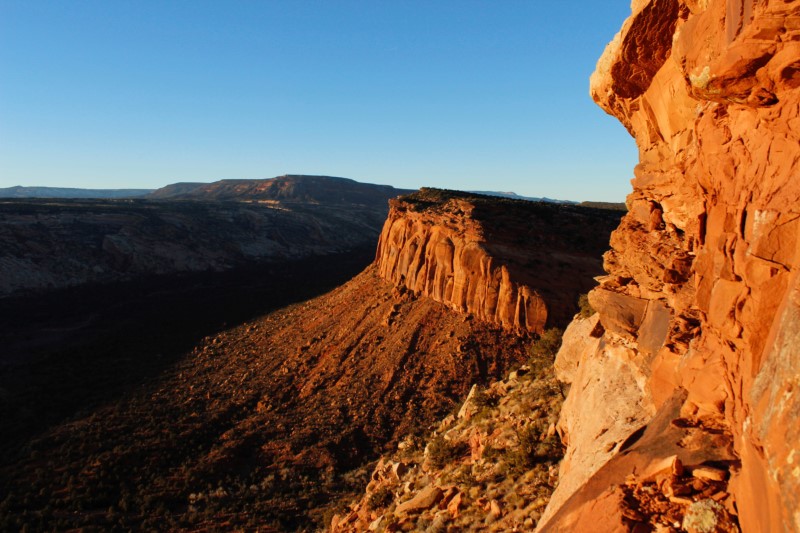By Valerie Volcovici
WASHINGTON (Reuters) - U.S. President Donald Trump on Wednesday will order a review of national monuments created over the past 20 years with an aim toward rescinding or resizing some of them - part of a broader push to reopen areas to drilling, mining and other development.
The move comes as Trump seeks to reverse a slew of environmental protections ushered in by former President Barack Obama that he said were hobbling economic growth - an agenda that is cheering industry but enraging conservationists.
Interior Secretary Ryan Zinke told reporters on Tuesday Trump's executive order would require him to conduct the review of around 30 national monuments and recommend which designations should be lifted or resized over the coming months. He said he would seek feedback from Congressional delegations, governors and local stakeholders before making his recommendations.
"I am not going to predispose what the outcome is going to be," Zinke said. Rescinding or altering a national monument designation would be new ground for the government, he said.
"It is untested, as you know, whether the president can do that," Zinke said.
The monuments covered by the review will range from the Grand Staircase in Utah created by President Bill Clinton in 1996 to the Bears Ears monuments created by President Barack Obama in December 2016 in the same state, covering millions of acres of land overlying minerals, oil and gas.
Obama's administration created the Bears Ears monument arguing that it would protect the cultural legacy of the Navajo and four other tribes and preserve "scenic and historic landscapes." But Utah's governor opposed the designation, saying it went against the wishes of citizens eager for development.
The area lies near where EOG Resources (N:EOG) - a Texas-based company - had been approved to drill.
Zinke said the broader aim of the order is to give states more input in the monument designation process, and "restore trust between local communities and Washington."
While he acknowledged that national monuments could bring tourism, he said he thinks federal land should be managed for "multiple uses."
Conservation groups and Native American tribal representatives slammed the looming order, suggesting it would be fought in court.
"With this review, the Trump Administration is walking into a legal, political and moral minefield," said Kate Kelly, public lands director for the Center for American Progress.

A summary of the forthcoming order, seen by Reuters, said past administrations "overused" the Antiquities Act that allows presidents to create monuments.